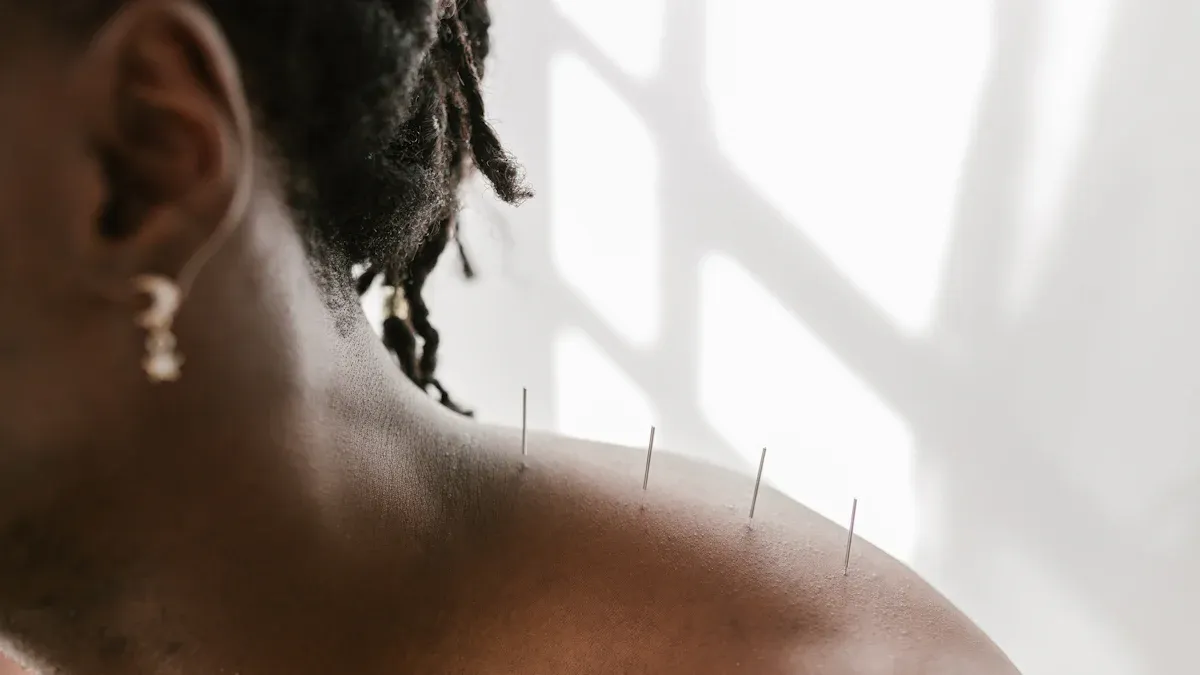Conditions Treated with Acupuncture Is It Right for You?

Acupuncture isn’t just about needles it’s about helping your body heal in a natural, balanced way. For thousands of years, people have turned to this gentle, holistic therapy to relieve everything from stress to chronic pain.
If you’re considering acupuncture but aren’t sure what it actually helps with, here’s a breakdown of the most common conditions it treats and how it might support your overall wellness.
1. Chronic Pain (Back, Neck, Knee, Joint)
Pain is one of the top reasons people try acupuncture. It’s particularly effective for musculoskeletal pain issues in the joints Pain, back Pain, or neck pain.
Conditions it can help manage include:
Lower back pain
Neck and shoulder tension
Osteoarthritis and joint stiffness
Sciatica and hip pain
Post-surgical pain
Studies suggest that acupuncture may help reduce pain signals in the brain, boost circulation, and promote the release of natural pain-relieving chemicals.
2. Headaches and Migraines
Acupuncture has been shown to reduce both the frequency and intensity of migraines and tension headaches. Instead of simply masking the pain like some medications, it works to correct imbalances that might be causing the issue in the first place.
Many patients notice fewer flare-ups after just a few sessions.
3. Anxiety, Stress & Sleep Disorders
If stress is taking a toll on your body, acupuncture may help reset your nervous system. It calms the body’s fight-or-flight response and encourages the production of calming neurotransmitters like serotonin and GABA.
Common emotional and neurological issues treated include:
General anxiety
Insomnia
Panic attacks
Chronic fatigue
Irritability or mood swings
By restoring inner balance, acupuncture helps you feel more grounded mentally and physically.
4. Women’s Health & Hormonal Support
Acupuncture is often used to support hormonal cycles and reproductive health. It’s commonly sought for:
Menstrual pain
Irregular periods
PCOS-related symptoms
Menopause hot flashes
Fertility support (natural or IVF-assisted)
It works by promoting hormone regulation, reducing inflammation, and improving pelvic blood flow.
5. Digestive & Immune Issues
Many people don’t realize that acupuncture also plays a role in gut and immune health. If you're dealing with IBS, acid reflux, or food sensitivity, it may help regulate digestive function and reduce flare-ups.
It’s also used to improve symptoms in patients with:
Allergies
Chronic sinusitis
Frequent colds
Autoimmune fatigue
6. Recovery & Preventative Care
Acupuncture isn’t only reactive. It can be a powerful preventive tool for people who feel “okay” but want to stay that way. Many athletes, busy professionals, and older adults use it to support:
Recovery between workouts
Immune resilience during flu season
Healthy aging and cognitive sharpness
Emotional balance in stressful seasons
How Do You Know If It’s Right for You?
Choosing acupuncture is a personal decision. But if you’ve tried conventional treatments with limited results or want to avoid long-term medication use it could be a safe, low-risk option to explore.
If you’re new to it, we recommend reading How Does Acupuncture Work? A Practical Guide for First-Timers for a clear explanation of what to expect and how acupuncture supports your body from within.
Final Thought
Whether you're managing daily stress or something more complex like chronic pain, acupuncture may offer a natural path toward relief. The key is working with a licensed practitioner who understands your unique health needs.

